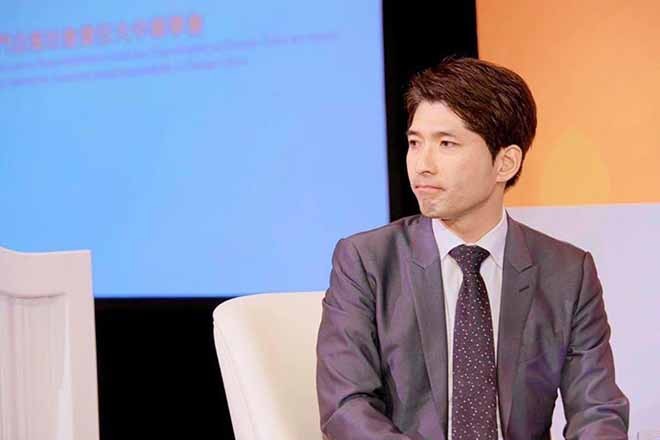Diversified development in Macao presents plenty of opportunities for international talents to thrive
Christopher Chu, an American Chinese author, and his wife, Maggie Hoi, an associate professor at the University of Macau, have co-authored two books on Macao’s unique cultural heritage. Chu, a New York native with degrees in economics and psychology from Pitzer College in Claremont, California, and a Master of Philosophy from the University of Cambridge, Britain, appreciates Macao’s natural allure. He views it as the Greater Bay Area (GBA)’s historical gateway to the West, enriched by vibrant cultural influences from other Portuguese-speaking countries. This results in a diverse cultural tapestry, says Chu.
.jpg?itok=139U1p2f)
Macao is becoming a hub for international talents. Dr Jason Ni, a senior executive at a major integrated resort, finds the diversity of people and expertise in Macao to be the most interesting part of his job. He believes Macao’s resource concentration provides a launchpad for talents to kick-start their careers, particularly in new fields.
Both Dr Ni and Chu are examples of international professionals who have capitalised on the opportunities in Macao. Their career satisfaction attests to the city’s immense potential for ambitious young professionals.
Global experience
Dr Ni, with his extensive experience in the US and GBA, currently assists in business development at a premier integrated resort. After earning his PhD from the University of California, Davis, he worked in the US for several years before returning to Asia. In 2010, he established a consultancy firm and contributed to numerous large-scale projects in Macao, including a transportation master plan.

“Macao’s uniqueness became apparent soon after I began working there,” Dr Ni recalls. “I have many cherished memories of the city. As a global hub for tourism and leisure, Macao draws international talents from not just the hospitality industry, but various other professions as well.”
Dr Ni, always eager for a challenge, served as an Assistant Professor in the Department of Civil and Architectural Engineering at the City University of Hong Kong for several years. His academic pursuits centred on GBA development planning, regional integration, transportation planning, and passenger capacity.
Several years ago, a leading mega resort invited Dr Ni back to Macao with a challenging but rewarding opportunity.
Dr Ni’s academic experience has significantly enhanced his expertise. “I find satisfaction in my current role,” he states. “My comprehensive and robust academic training allows me to apply well-rounded thinking in business. My familiarity with Macao and the GBA benefits my work, as many strategies employed by Macao’s integrated resorts align with GBA policies.”
Inspired storytelling
Chu, driven by family and a passion for storytelling, left his decade-long career as an investment analyst and a financial writer in Hong Kong to immerse himself in Macao’s rich cultural heritage. His writings now focus on deepening the understanding of Macao as a cultural melting pot.
He has co-authored the book Macau’s Historical Witnesses with his wife Professor Hoi, a native Macanese with a PhD from the University of Cambridge. This book is a compilation of succinct essays that delve into the lesser-known aspects of landmarks in the SAR, which have been silent observers to significant events over centuries. Chu explains, the ‘East meets West’ expression undermines Macao’s significant historical footprint and blended uniqueness. “There are numerous themes and ideas that congregate, so the sum of these parts is truly greater than the whole,” he says. “When Maggie and I began researching and writing our essays, we sought to explore the intricate nature of these relationships and synthesise various elements to paint a comprehensive picture.”
Their second book Camilo Pessanha’s Macau Stories offers a unique perspective on the history of the SAR, as seen through the eyes of the Portuguese symbolist poet who resided and worked in the city from 1894 until his death in 1926. The two books will be available in English, Chinese, and Portuguese.
Chu notes that these stories about Macao not only hold historical significance but also serve as a source of inspiration, acting as a roadmap that highlights our societal progress and offers glimpses into the future.
The process of research and writing about Macao has been an immersive journey. “We were humbled by the numerous strangers who approached us, generously sharing their insights into Macao, thereby enriching our understanding as we penned these words,” adds Chu, who is currently working on another book that explores different facets of Macao’s history through its culinary heritage. “Writing about Macao has not only deepened our connection with the city but also fostered meaningful relationships within diverse communities.”
Macao’s dynamic diversity enables Dr Ni and Chu to flourish in their chosen fields. This same opportunity is available to many ambitious young professionals. The Macao SAR Government has recently launched “The Talent Recruitment System” to attract global talents to further enhance the innovation, competitiveness and international recognition of the SAR.This involves bringing in leading figures and advanced professionals needed for the development of key industries, with the goal of leveraging their skills, experience and networks to develop local sectors for economic diversification.

The System features three programmes, along with their respective application periods: the “High-end Talents Programme”, the “Outstanding Talents Programme” and the “Advanced Professionals Programme”. The System focuses on talents in four industries and professions, which are Big Health Industry; High-Tech Industry; Modern Finance Industry; and Culture, Sports and Other Industries.

